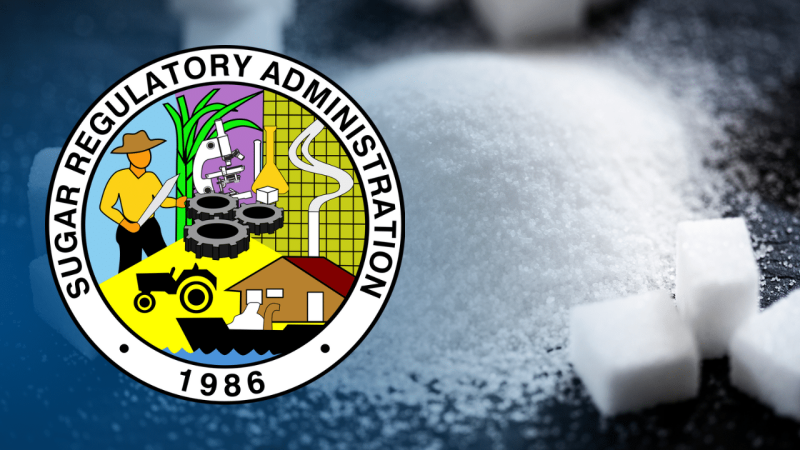Sugar Regulatory Administration (SRA) | FILE PHOTO
Businesses that are shipping in sugar alternatives from abroad now have to pay fees and are required to secure import permits that would help in monitoring inbound volume, according to the Sugar Regulatory Administration (SRA).
The SRA has promulgated Sugar Order (SO) No. 6 which slapped a clearance fee of P3 per 50-kilogram (kg) bag or P60 per metric ton on imported “sugars” and “sugar confectionery” except fructose.
The SRA released SO 6 on Jan. 2 this year, although it was dated Nov. 18, 2024.
For fructose, the regulator said the clearance fee is set at P30 per 50-kg bag of raw sugar equivalent as stated in Section 2.1 of SO 3 issued in crop year 2016-2017.
Also, the SRA now requires a shipping permit for any coastwise movement or transport of sugar substitutes covered by the latest SO.
More measures
Some industry groups welcomed the SRA’s latest move to levy import fees on sugar alternatives, but called on the regulator to implement other measures to govern this type of sweetener for the sake of local farmers.
“This has been our request for so many years and finally this administration has imposed the fee. These industries should buy local sugar, not imported,” United Sugar Producers Federation of the Philippines president Manuel Lamata said in a Viber message over the weekend.
Enrique Rojas, president of the National Federation of Sugarcane Planters, said the directive “is a move in the right direction,” although he said the fee should be higher and the SRA should have acted on the issue much earlier.
“It is high time that SRA imposes the import clearance fees, and it should also explore other measures to ensure that sugar alternatives do not substantially displace the demand for local sugar,” Rojas said in a text message.
Rojas also said imported sugar alternatives should be under some kind of regulation regardless of their tariff classification.
Moreover, he asked the government to address the impact of sweetener substitutes on sugar farmers’ livelihood and the health of the general public.
The latest directive includes all “sugars” under heading 17.01 of the Asean Harmonized Nomenclature: sucrose, specialty sugar and flavored syrups.
It also covers “other sugars” under heading 17.02 such as fructose, lactose, glucose, dextrose, maltose, maltodextrin, maple sugar and maple syrup, sugar syrup, palm sugar, coconut sap sugar, honey and caramel.
Furthermore, the SO includes all “sugar confectionery” under heading 17.04 such as white chocolate not containing cocoa and chewing gum.


